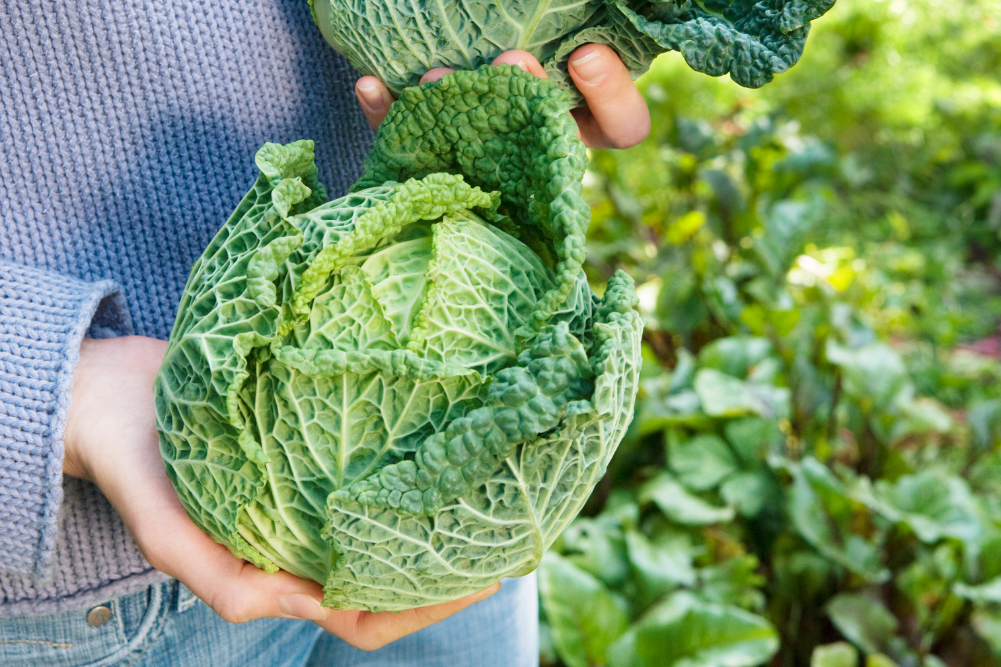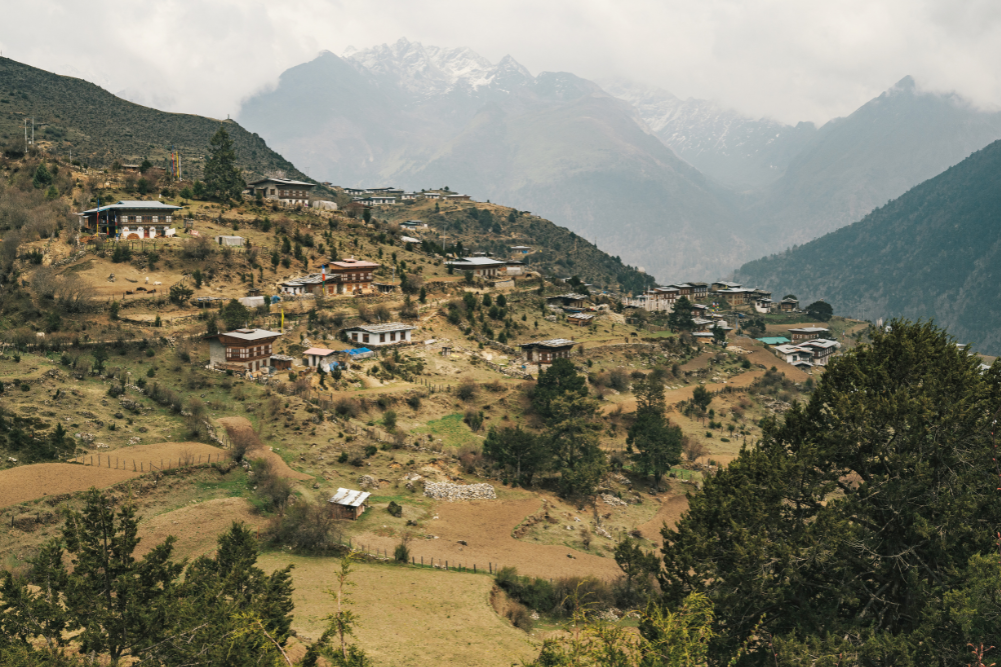Discover our rule of thumb for healthy, mindful travel
Chances are, if you are reading this you have your regular Health and wellbeing routines at Home, be it healthy eating, regular yoga classes, daily meditation, shopping at your local organic market or a well-loved gym membership. Travelling, while being exciting, engaging and fulfilling in its own way, can take a pretty serious toll on physical and mental wellbeing if this routine is broken. How do you keep fit when you don’t have access to your normal gym or yoga class? Is it possible to fit in downtime without missing out on the sights? And what about healthy eating when you aren’t familiar with the local cuisine?
The basics
Immunise, immunise, immunise
There are some pretty nasty infections that follow travellers around, but the good news is you can protect yourself from many of them with immunisations. Tetanus, polio, hepatitis A and B are the basics, but consider nasties particular to the region you are heading to: for example, typhoid is fairly common in parts of South-East Asia, while yellow fever is present in some African nations. Always consult your GP before heading overseas, or try talking to a specialised travel doctor if you have specific needs.
BYO first-aid kit
Pack a first-aid kit. Even a small, basic one will help get you out of many situations. Include basic items like Band-aids, antiseptic wipes, an antibiotic treatment such as Betadine, a gauze pad, medical adhesive tape and a bandage or two, as well as basic medications such as painkillers and stomach settlers. Pack it all in a durable container and pop it in your suitcase — it won’t take up much room but might save you an unnecessary trip to the doctor or chemist.
Mind the mossies
Protection from mosquitoes is particularly important in regions where diseases like malaria and dengue fever are present. The best ways to protect yourself from bites are to wear an effective insect repellent, be careful to cover up at sunrise and sunset, particularly around the wrists and ankles, and avoid dark-coloured clothing and heavy perfumes. Medications are also available to help protect against some mosquito-borne diseases.
Look after yourself on aeroplanes
Planes can be a source of all sorts of nasty travel ailments — everything from colds to stiff, aching muscles can manifest, particularly on long-haul flights. If you are on a plane for a long time, be sure to stretch or do some simple yoga whenever possible. Even going for a short walk around the cabin will help get your circulation pumping. Drink as much water as possible (avoid coffee and alcohol if you can) and eat a healthy meal of lean protein, vegetables and complex carbohydrates. When you arrive at your destination, spend some time in the sunshine and fresh air, and take off your shoes to reconnect with the Earth: there’s nothing like digging your toes into the sand of a beautiful beach to get yourself into holiday mode!
Exercising on the road
Don’t let your usual routine slip
If you are a someone who runs daily back home, aim to keep that up while travelling. If you prefer a yoga class a couple of times a week, build that into your schedule as well. Your body will love you for continuing to look after it even though everything around you is changing. Make a goal you would like to achieve by the time you get home and keep track of your progress in whatever way is best for you. Bring the clothes you usually wear to work out, and make time for exercise each day, just like you would at home.
Research fitness options
You might be able to stay in a hotel with a pool or fitness centre, or there might be an inexpensive public swimming pool nearby. Expat guides might show you private tennis clubs or fitness centres you can join for a week or enter as a casual. You can always run in whatever city or town you are staying in — just be sure to check which areas are safe before you set off. Keep an eye out for a park that might have fitness equipment or anything you can use: sturdy trees or kids’ playground equipment are good props for basic exercises.
Include exercise in your sightseeing
Walk wherever possible! In big cities it’s not uncommon to walk up to 20km between sights each day, and that’s of huge benefit to your body. A lot of cities offer cycling tours, particularly in Europe and Asia, or you can hire your own for a very cheap self-guided tour. Take in the natural Beauty of your destination by hiking, climbing mountains, snorkelling or surfing, or check out the local golf or tennis club.
Plan a hotel room exercise regime
The general rule when travelling is to work with what you have — and for strength routines that’s your bodyweight! Skipping, squats, sit-ups, mountain climbers, push-ups, planks, jumping jacks, burpees and lunges are just some of the exercises you can do in whatever hotel room you find yourself in. If you need a bit of extra weight, use what’s on hand: water bottles can add a few kilograms, or try filling your backpack with a few heavy books. Consider taking some easy-to-pack fitness tools, such as a resistance band, skipping rope or water weights.
Hotel room exercise routine
Try this 20-minute routine to give your whole body a workout on the go. Modify the exercises as you need to suit your body. Repeat twice or three times for a stronger workout. Don’t forget to stretch at the end!
One minute jog in place
One minute of push-ups
One minute of jumping jacks
One minute wall sit
One minute of plank
One minute of lunges
One minute of burpees
One minute of squats
One minute of crunches
One minute of rest
Alternatively, five rounds of 25 burpees, 25 push-ups, 25 sit-ups will work all the main muscle groups.
Yoga on the go
The beautiful thing about yoga is that it can be done virtually anywhere and with very little equipment. Travel yoga mats are available from a number of stores and are super lightweight and easy to pack, but it’s also easy to go without — digging your toes into the sand of a foreign beach or a beautiful city park can be a good way to ground yourself in the middle of an exciting holiday.
If you prefer the structure of a class, try bringing one with you on your laptop or tablet, or upload a spoken routine to your music player. You could also try being a yoga tourist: check out local yoga classes, particularly in South-East Asia where many are run inside beautiful temples. Many cities also offer yoga retreats lasting anywhere from one night to a couple of weeks.
Keeping on top of healthy eating
Safety first
Be careful about the food and water you consume, particularly in developing countries. Consider packing a small hand sanitiser to put in your day bag so germs are kept off your food while eating out. If you are eating street food, make sure it hasn’t been left out for too long: try to get the vendor to cook it fresh for you so you know no nasty bacteria have started to grow.
Plan!
Research before you go: look for healthfood stores in the area you are staying in or try to get a hotel near the farmers’ market. Pack cutlery and containers if you will be making snacks or preparing meals. Do a bit of research to find local meals with health benefits; for example, some Italian dishes have a superb blend of healing herbs, while some Asian curries are created with only coconut, spices, lean protein and vegetables. Spending an hour or two researching before you leave will help with making healthy decisions when you arrive.
Avoid alcohol & fast food
Avoid it like the plague! It’s particularly hard to resist alcohol in Asia, where it can be as cheap as $1 a bottle, but limit yourself — your body and wallet will thank you! Don’t opt for fast food as a quick alternative to a healthy meal. A general rule is that if you wouldn’t eat it at home, don’t eat it overseas.
Don’t skip meals
Although it can be tempting to skip lunch in favour of making it to another sight, don’t do it: remember, food is the fuel that will keep your body healthy enough to keep up with you on your adventures! Make eating a priority: not only is it fundamental to your health but it’s also a great insight into different cultures.
Make healthy choices at restaurants
Make smart choices in restaurants, just as you would at home. Be wary of carbs, particularly in Asia where rice is a staple at nearly every meal. Like at home, opt for a menu item that balances protein with vegetables and avoid heavy dressings.
Keep hydrated
Drink water as often as possible, particularly on planes and in cold weather. Check location-specific advice to see if bottled water is necessary, and if the tap water is OK bring a water bottle from home so you can fill up on the go.
Prepare snacks
Consider bringing some snacks from home, particularly for the plane. Nut butters, nuts, dried fruit, muesli bars, protein bars and rice cakes all keep well for long periods of time, so consider packing some of these into your checked luggage. Buy fresh fruits from local markets, head to the supermarket for snacks like yoghurt or piece together your own trail mix from local ingredients. If you are taking food internationally, be sure to check airline and customs regulations to make sure you don’t run into any trouble!
Try making sandwiches for lunch and eating healthy restaurant meals in the evening: it’s easy to piece together a tasty sandwich with some freshly baked bread, salad from the markets and a slice of ham from the deli.
Looking after your mental health
Don’t forget about your mind! It seems a bit silly to have to concentrate on emotional health while travelling; isn’t the point of a holiday to be relaxed and enjoy yourself? While that’s true, travelling does come with its own variety of stress factors: a hotel has been incorrectly booked and you have nowhere to sleep at night, your passport goes missing, a flight is delayed, or a long day of walking and sightseeing is making you physically and mentally drained. It’s important to do regular mental health check-ins to make sure your holiday is treating you well.
Attitude is key
Just like back home, your emotional wellbeing is related to your attitude and how you react to situations. Be flexible: things don’t always go to plan, so accept issues rather than get angry. Take deep breaths before reacting to bad situations. Accept cultural and language difference rather than be frustrated by them. Let go of the things you can’t change and work on what you can: what you are thinking and feeling. Start each day with a positive mantra: think of how lucky you are to be on holiday and how exciting it is to be experiencing a new place and meeting new people.
Meditate & be mindful
If you are a regular meditator, don’t let the habit slip when you are overseas. Make it part of your daily routine: maybe you want to get up early and spend some time meditating in nature before breakfast, or perhaps spending 10 minutes right before bed is more for you. Travel mindfully: really appreciate the new sights, sounds and flavours of the place you are in. Mindfully reflect on your days and create memories in whatever way suits you best: take a heap of photos, start a travel diary, scrapbook with entrance tickets and pressed leaves.
Travelling is also a great excuse to disconnect from the internet and devices, so take advantage of that! At minimum, limit yourself to half an hour of screen time each day, but if possible try to spend a few days without looking at a screen at all. Not worrying about emails or social media will help keep you to be present in your holiday.
Sleep!
Sleep is incredibly important to your physical health as well as your mental and emotional wellbeing. Make sure your bed is comfortable, particularly in budget accommodation — if it isn’t, consider changing rooms or even moving to a different hotel. If you need to, bringing some comforts from home, like a favourite pillow, might help you have a more restful night. Sleeping on planes is always a challenge, but bringing a neck pillow, eye mask and ear plugs will make you more comfortable.
Try to develop a night-time routine when you travel, particularly if you are away from home for a while; even if it’s as simple as a shower, quick meditation or yoga and reading a page or two of a good book, it will help you develop better sleeping habits.
Be inspired
Reading a great book or magazine can keep you engaged as well as making you happier, healthier and smarter. Try learning something new on your holiday: consider a cooking class or enrol in a language school. Make a travel playlist of your favourite inspiring music and play it on long bus or car rides.
Relax
Above all, remember you are on holiday: if all you want to do is lie on the beach with a good book and fresh coconut juice all day, do it. Don’t feel bad about not rushing around seeing different sights every day. Make your holiday what you want it to be!
The rule of thumb for healthy, mindful travel
Do the best you can with what you have. Take the healthiest food option available, even if it isn’t ideal, and, if you only have 10 minutes for exercise or meditation, take it. Your mind and body will thank you for it later.








